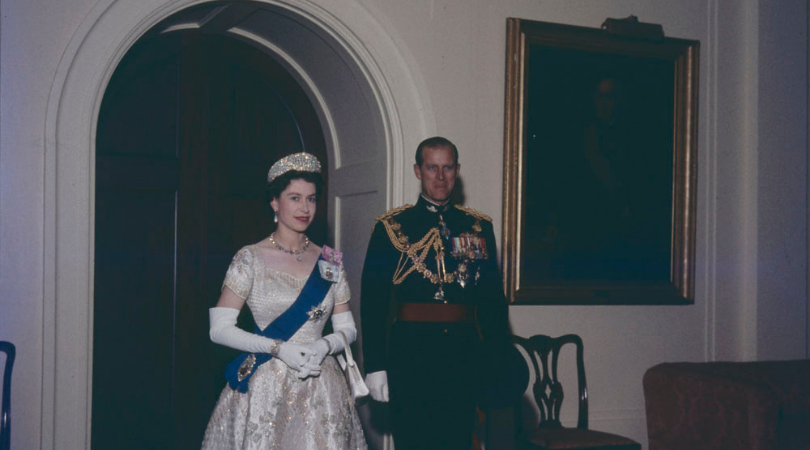The Queen & the Varying Perspectives of Grief


Mourning the loss of a loved one at any age can be an isolating and solitary experience. But for older folks who have spent numerous decades living every day with a spouse or life partner, the process of grieving and beginning a new chapter of life can feel overwhelming.
Take Queen Elizabeth II, for example. Last month, when the Royal Family gathered to mourn the loss of Prince Philip, this image of Her Majesty captured the world’s attention. Suddenly a new widow, without her husband of 74 years, the Queen sat alone in a row of empty pews.
Many people around the world have been in her shoes or have watched an older family member go through a similar situation and wondered how they can help. But whether it’s the loss of a long-term spouse or a young child, everyone faces grief in their own way.
“When you lose someone who is young, you grieve for all the things they’re not here for,” says Crystal Hosier, a bereavement coordinator with Crossroads Hospice & Palliative Care. “When you lose somebody who’s older, you grieve all the things they were here for.”
Grieving as a Long-Term Spouse
When you spend multiple decades living and sharing life with another person, the grieving process is going to take time. Loss is a huge adjustment, says Crystal, who helps the bereaved navigate their grief through one-to-one conversations via phone or in-person visits and providing resources that may be helpful.
“I like to tell my bereaved, ‘try not to focus on figuring out what is next. For now, just get through the days’,” she says. “You’re adjusting to not having that person physically present, but remaining emotionally connected, which can entail a range of emotions,” she says.
In the beginning, their days might look and feel very different from what they’re used to. Some folks will find themselves reliving and replaying every detail of their relationship, while others will feel a sense of relief without the obligation of having to go to a nursing facility every day to check on their loved ones.
Either way, the biggest challenge is to not rush into replacing routines, traditions, or relationships. Loved ones should take it slow by acknowledging that things have changed significantly. This is a big life adjustment that doesn’t happen overnight, says Crystal.
There may be other adjustments to be aware of, as well. Some spouses have to assume new roles or take on new life responsibilities, like learning how to write a check or fixing things around the house. These chores might be something they haven’t done for years, and can add to the stress and anxiety that these newly widowed individuals are experiencing.
Loved ones who are feeling anxious about how to move forward can always reach out to their Crossroads bereavement coordinator and let them know how they’re feeling. It’s important to keep in mind that asking for help is not a weakness.

Communication with the Family Dynamic
When grieving as a group, it’s common for members of the same family to talk about the person they lost by sharing favorite memories or discussing their feelings openly. This can help siblings or children feel less alone in their emotions and support each other through adjusting to not having that person physically present.
But everyone has their own process with grief, and no one should carry expectations or make assumptions about how someone else is processing loss. There are many ways for people to express their grief. Activities like reading poetry, playing music, or journaling can be healing for some but not for others.
So if someone’s emotional process doesn’t look or feel like yours, it’s important to withhold judgment, says Crystal.
“People tend to think that if someone’s not talking about it, they’re not grieving right. And that’s not true,” she says. “They just might not be talking about it to that person and/or expressing their grief without words.”
Another thing to consider is the importance of communication during the months and years that follow a significant loss, not just in the immediate aftermath. Having regular check-ins with loved ones and family members will not only help individuals understand what they are going through, but also help clear up any lingering assumptions.
For instance, some family members might be feeling better after six months and will be ready to experience new things; others might be just beginning their grieving process. Semi-regular communication will help everyone involved know where they are.
It’s also important not to push the topic. If someone isn’t ready to open up about their feelings, they should be given the space and time they need to process their loss, in their own way.
Pitching in as a Friend
Depending on a person’s connection and closeness to the person who passed, their grief might feel like less of a priority, especially if it hasn’t disrupted their daily routine. Still, it’s important for them to pause and acknowledge what they’re feeling and grieve in their own way.
A simple way for them to do this is by lighting a candle and sitting with their emotions. They can do this alone, or they can do it with the person who lost their significant other. It’s a simple act of kindness that can open the path to a larger conversation about what each of them are going through.
Crystal reminds her bereaved how important it is to be patient and kind to themselves. There is no right way to grieve the loss of someone and grief takes time. It’s different and unique to everyone, including the Queen of England.
Crossroads offers complimentary grief support groups in all of the areas we serve. For more information, give us a call at 1-888-564-3405.
If you found this information helpful, please share it with your network and community.
Copyright © 2021 Crossroads Hospice & Palliative Care. All rights reserved.




